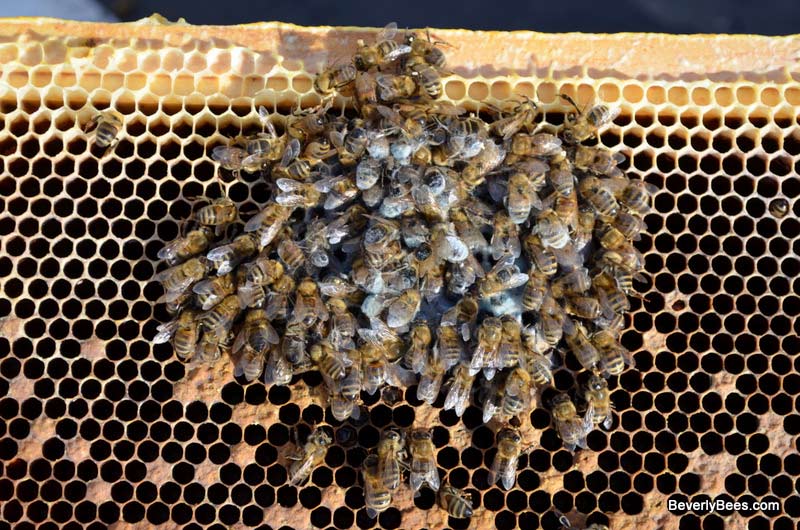Dr Marla Spivek in October American Bee Journal discussed some examples of “double-edged swords” beekeepers are facing. One was the conundrum of individuals starting beekeeping to save the bees but then they don’t properly care for their bees. New beekeepers don’t initially know how to care for their bees but also some individuals who start a bee hive have the mistaken belief by not treating or feeding colonies their bees will be more hardy by building resistance to mites/diseases. They didn’t really want to keep bees, just save them.
Are honey bees going extinct? The short answer is no – honey bees are not going extinct. In fact the total number of bee colonies is growing in the U.S. fueled by the demand for colonies to pollinate almonds. Colonies are not healthy but the actual number of colonies are increasing.
The Save the Bees message gets mixed because of simple confusion between the words honey bee, bee and pollinators. The honey bee is one species of over approximately 400 bee species in Oregon. It is true some of our Oregon bees are disappearing or are in danger of extinction. The suitable habitat for their nesting and disappearing of flowering plants are major reasons for this. Especially critical are some bumble bee species – some were never common to begin with.
Annual colony losses are too high
Honey bees have suffered high annual colony losses now for several years. The majority of losses are caused by high varroa mite numbers (the syndrome we call PMS). The mites transmit viruses which may reach epidemic levels. Additionally, each spring, colony losses might be due to starvation or freezing due to too small a population. Both starvation and colonies too small to survive might actually also be indirectly due to varroa mites.
Full-sized colonies die but especially vulnerable are new splits or feral hive transfers. We lose more package and nuc established colonies during the winter than we do previously overwintered colonies – often double the losses of previously overwintered colonies as i document in the Annual Oregon Colony Loss i conduct each March/April www.pnwhoneybeesurvey.com
Winter too is a critical time for unmanaged (feral) colonies that inhabit tree hollows, building hollows or other sites. Only 1 in 5 will survive their first winter. Although mites might be involved, new colonies and unmanaged feral colonies often fail to store enough resources to survive.
Langstroth in his first edition of the Hive and Honey Bee mentioned the high losses of beekeepers overwinter over 170 years ago. Introducing his new hive, his suggestion was to take losses in the fall (by combining for example) weaker units and those with too little stored honey to survive. His suggested loss level of 45% is close to what smaller-scale beekeepers now are experiencing. (www.pnwhoneybeesurvey.com)
Save the Bees
So if individuals want to Save the Bees what is best thing someone can do to help honey bees? One way is becoming a dedicated beekeeper properly taking care of the bees. This means feeding, controlling swarming, timely adding of extra brood and honey storage space and then the most important thing – committing to control of varroa mites so the colony might avoid a viral epidemic.
Short of becoming a beekeeper, planting flowers that bloom throughout the season will also help save our native bees and provide honey bees with their critical flower resource. Plant and take care of the new planting, including watering them so bloom extends through the season, including during drought conditions. If an individual lacks suitable space, then investigate planting in the community to help bees and pollinators or supporting such programs. Allowing lawns, slopes, public areas to grow weeds such as clover and dandelion will help bees. In addition to planting flowers providing suitable habitat for bee nesting will be helpful. And using less harmful pesticides can be of great assistance in Saving the Bees.
Education of neighbors and consumers of the need to become educated about the importance of pollination and the positive ecosystem service honey bees, native bees and pollinators provide is also helpful. Planting flowers, preserving habitat and reducing pesticide usage will directly help honey bees. Saving the Bees is in all of our interests. It is never too late to start.

